Gig Review: How Henry Rollins Just Talks And It Is Weird, And Wonderful, And Interesting In Almost Equal Measures
Way back there were reviews of gigs. Now there aren’t. They are hardly ever there. So I am trying my best to bring them back. Here’s one of Henry Rollins’ spoken-word show. My 4th time seeing him.
Henry Rollins
Old St. Paul’s, Wellington
Saturday, July 8
Henry Rollins is a poet and a publisher, raconteur, author, journalist, bit-part actor, DJ, collector, selector and former singer. He was best-known for a time as a punk-rocker and singer for Black Flag and then The Rollins Band. He was best-known for a time as the writer of edgy books that were sometimes travelogues and diaries, other times Beat-referencing, Selby-aping confessionals and diatribes. He has almost always been out on the road between times as a spoken-word artist, telling stories about his life and experiences, weaving words around the audience with the microphone chord coiled around his wrist.
In fact, his role as storyteller, spoken-word essayist and, well, “comedian”, is the role he’s played the longest. And his spoken-word shows are an act of virtuoso speaking, which might sound like a strange boast or odd skill – and, well, yes…yes it is.
For a while there he was on the circuit coming to New Zealand every couple of years. And I saw him three times, and it was always great, always interesting, and always different. A little bit punk, a little bit political, and filled with stories – always – of his travels.
This time, after a long break, and a global pandemic, Rollins wasn’t really able to talk about travel (beyond the fact that he was pleased to be back on the road). Instead he started off, establishing some common ground and giving off some Brownie points, by praising Jacinda Ardern’s effort in keeping New Zealanders safe (and mostly sane), and talking about his own experience as a locked down, travel-free citizen of the world in a country under Trump’s counterfeit leadership.
He promised not to get too political this time, and actually the opening minutes were almost a little shaky at times – almost desperate to establish rapport and never really saying very much.
When he settled down into the meat of the show and the real storytelling it was frequently very funny and just freakishly awe-inspiring, the sheer energy and stamina of speaking at the rate of knots without repetition.
Sweat was running down his microphone arm and dropping from the cocked elbow to the floor, his black t-shirt darkened with sweat all around his upper chest and he appeared to get greyer and more gaunt as the first hour moved into the second and then crawled a bit toward the third.
For some, the idea of listening to a man – a 62 year old white man, for that matter – might be close to lowest on a list of pleasurable things to do. For others, it’s a joy to hear this man’s experiences, and particularly the way he frames and delivers them.
I’m in it for the thrill-ride of where the stories are going to go, the arc and flow, and for the mere fact that it happens at all. It’s somehow both utterly bonkers and the most natural thing in the world: To listen to someone speak, at length, and make things interesting. I’m a fan of talking. I do it a lot myself. I’ve done it over and through a microphone in many contexts – and yet I cannot imagine what it is like to do it like this, to build this world, to have this stamina, to draw this material out.
The long story that was the penultimate punchline of the evening, around a real-life stalker that Henry had encountered, was, whilst funny and weird, a little too long and it dipped toward the irrelevant - but still carried many amazing moments.
It was the story that preceded that, when the evening really got going, that I’m still thinking about now. Over about 30-40 minutes, Henry told the tale of his mother – it started with her meeting his father, them not being suited, not wanting to have children, both having alcohol problems and then having Henry and sharing custody of him. He was an unhappy child that didn’t like either of his parents much and was biding his time until he could bail. At 18, that’s what he did. Famously, he fronted the band Black Flag.
But the story of Iris was around how Henry could never shake her. You see, she and her husband (not Henry’s dad – and the best of any of his step-dad’s) would front at almost all of his shows. Following Flag, Rollins Band and some of the spoken-worders and always walking back stage to comment on his anger and his energy.
The story of Iris dipped and dived and moved and meandered but it was all so masterfully done. It was fun, heartbreaking, and wonderful. As I was hearing it I wanted to see it written down. Henry releases his shows as DVDs or streams, as CDs, and sometimes there are books that feature parts of the stories – I imagined all of this as I was hearing it for the first time. I wanted to see and hear and read and feel this story all over again as soon as it was finished; even while it was happening. Across that half-hour or so it was the greatest story I’ve ever heard. It was told in the most moving and magical way. It featured walk-ons from fellow punk great, Ian MacKaye, and a bunch of family members and partial/para-family members. And it was one of the greatest studies in humanity I’ve ever heard. It was wild. Beautifully so.
And that is why you go and see and hear Henry.
There was some cool, funny, light stuff to finish, about being an old punker and still going to gigs and standing politely for kids for photos, and all of it was just there to set up a self-effacing punchline around how old and irrelevant he was – but it was a neat wee bow on the evening. And it was a comment on the evolution of Rollins’ character too. About 25 years ago now, his spoken word shows moved away from straight anger and closer to comedy; he developed the timing and timbre of a comic and showed he had a great understanding of that medium without ever trying to connect himself entirely with it.
What Henry Rollins actually happens to be is still a mystery in a way. Even with him putting so much of himself out there, and leaving so little to cryptic analysis or commentary. It’s all very much there, it’s all obvious, it’s all open and planned, and it is the long-division inner-workings of a person trying to understand himself. He would be there doing that talking if the crowd was half the size, and possibly if the crowd wasn’t there at all. But he has his audience. And on this night he largely served that audience well.
I’m a fan. I’ve interviewed him twice, seen him live three other times, read most of his books and processed a lot of his other work (from acting performances to his various media) and I still found this quite thrilling, often very moving and downright funny too.
No mean feat whatsoever.
One day Henry won’t do this anymore. And that will seem more weird than how weird it currently is that he has been doing this for so long that it feels like he’s always being doing it.
Postscript: In the months ahead of this show, as part of the promo, I recorded a conversation with Rollins for my sporadic podcast.




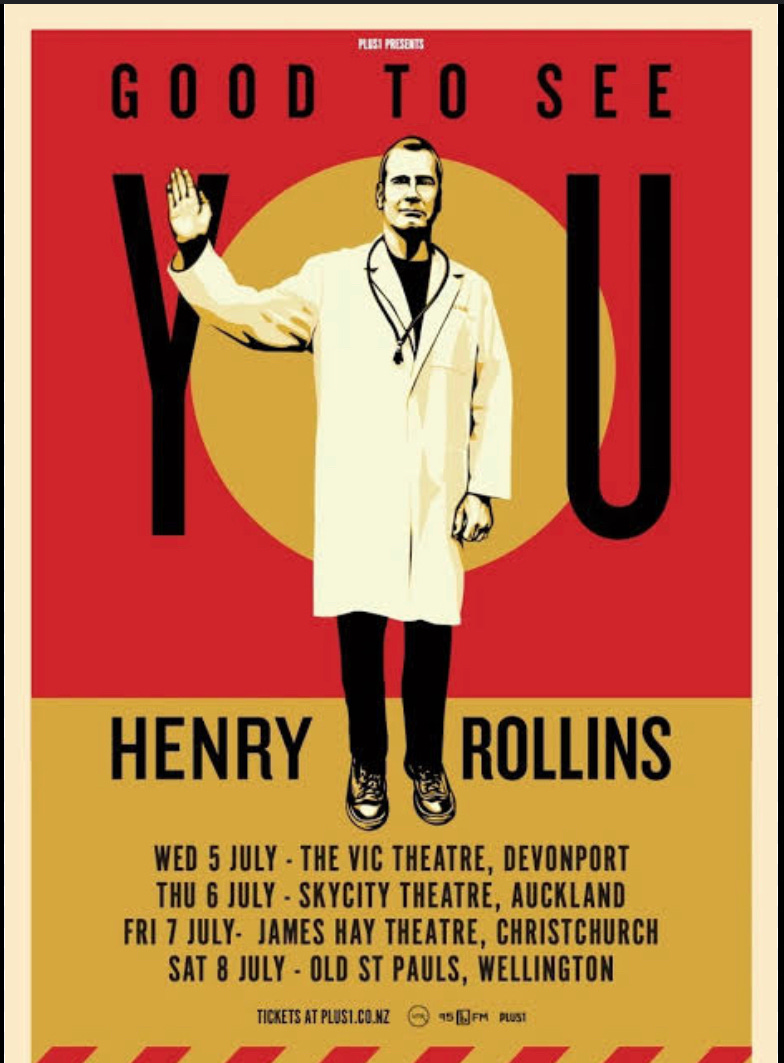
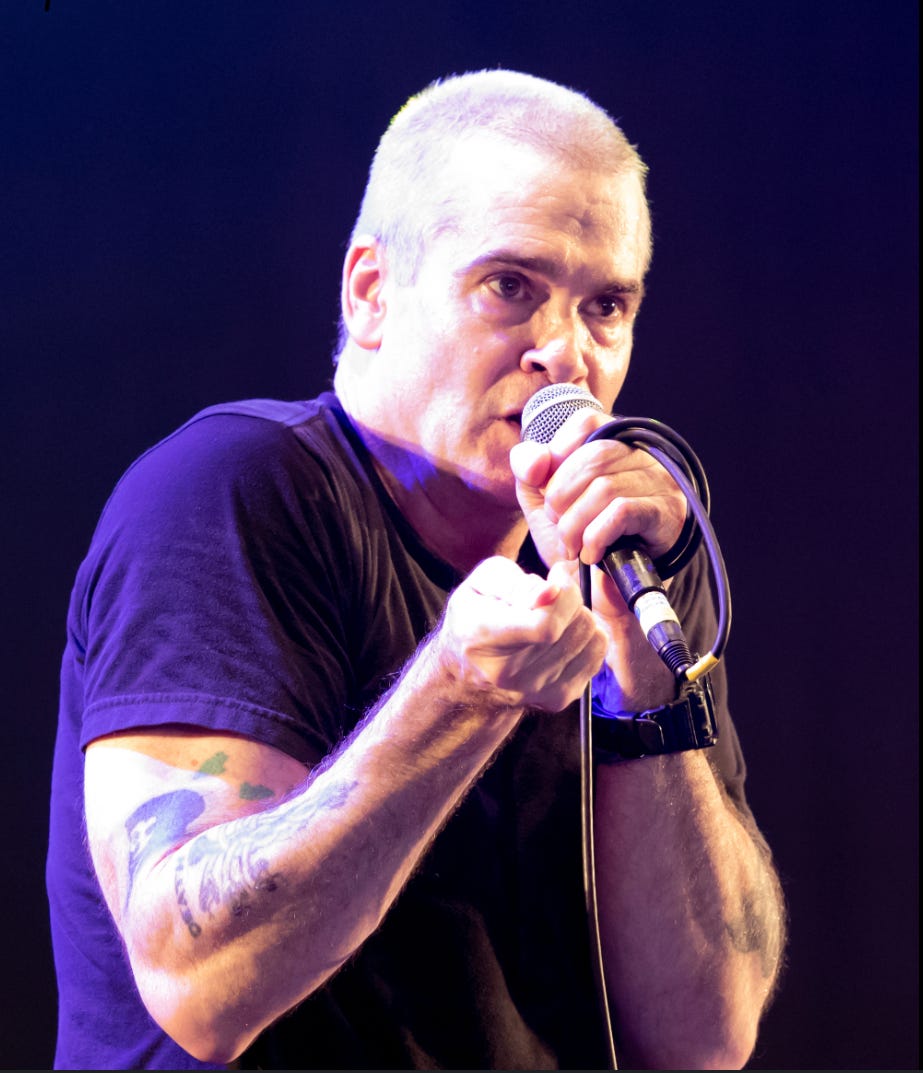
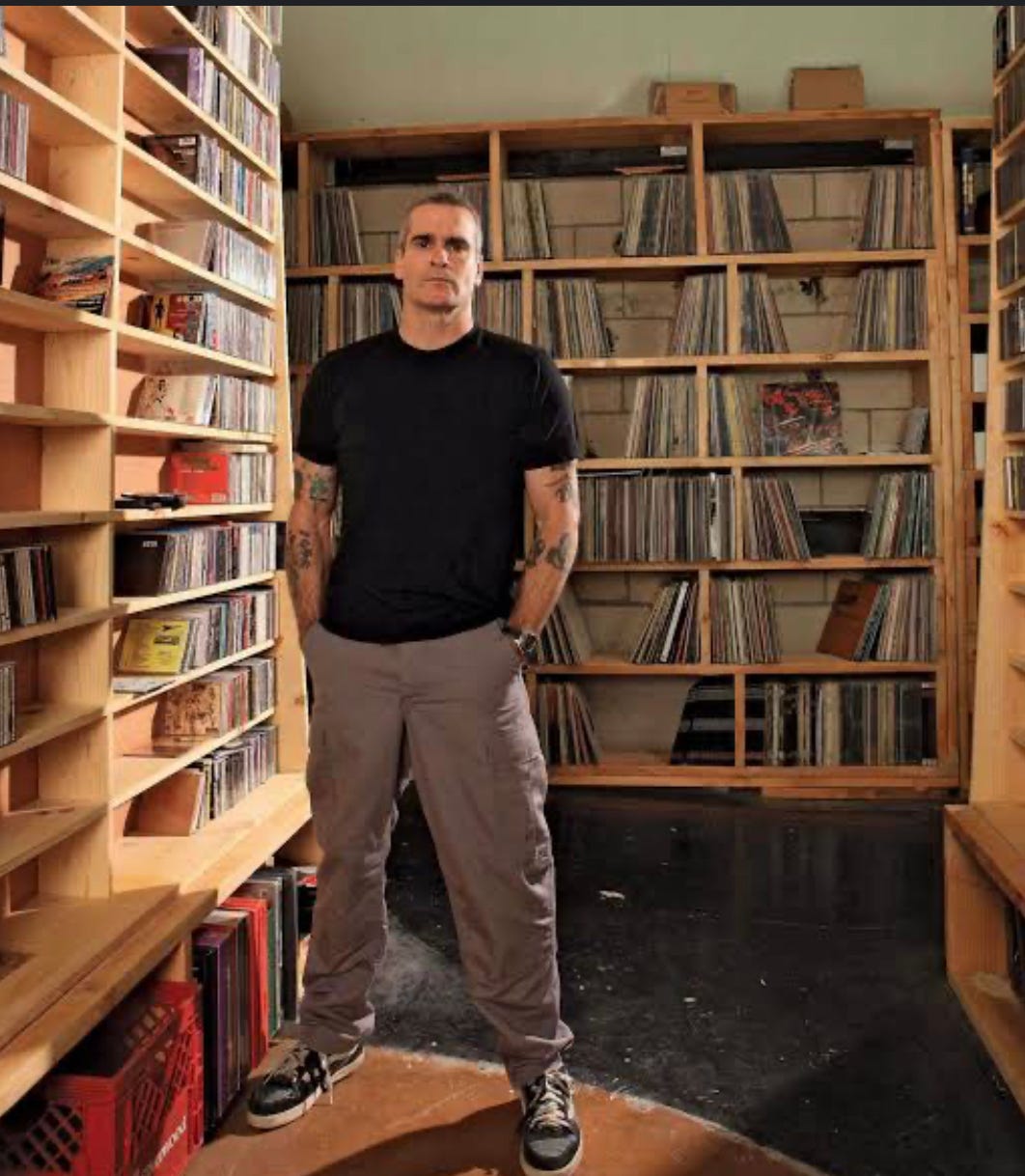
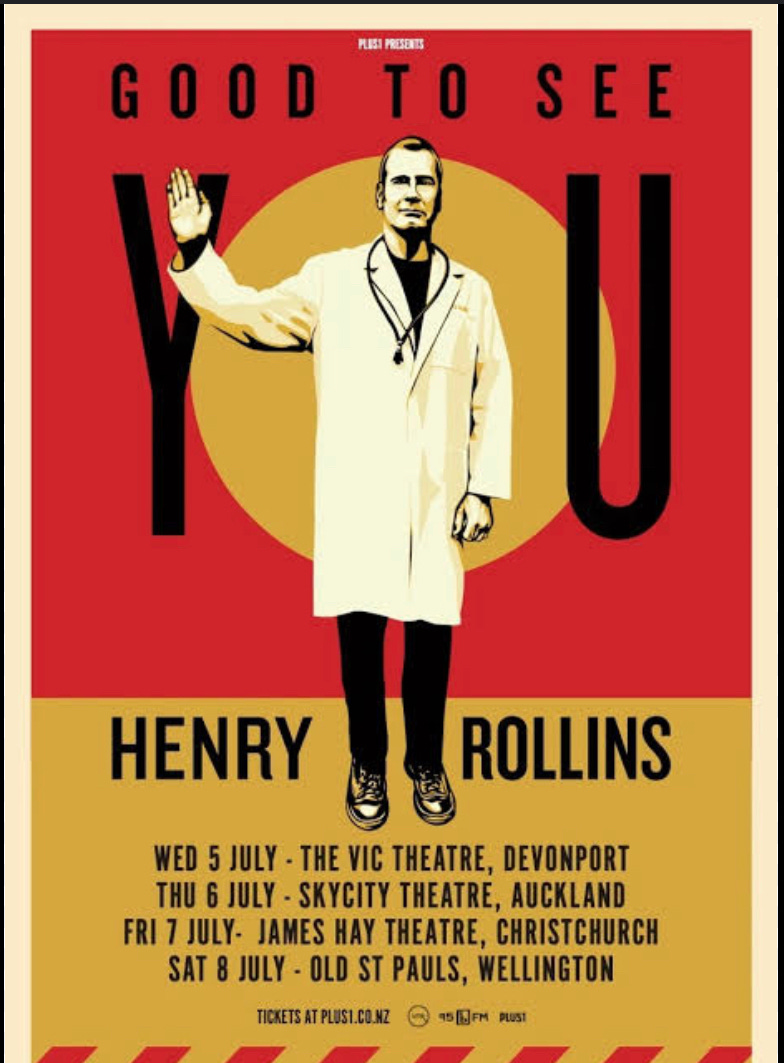
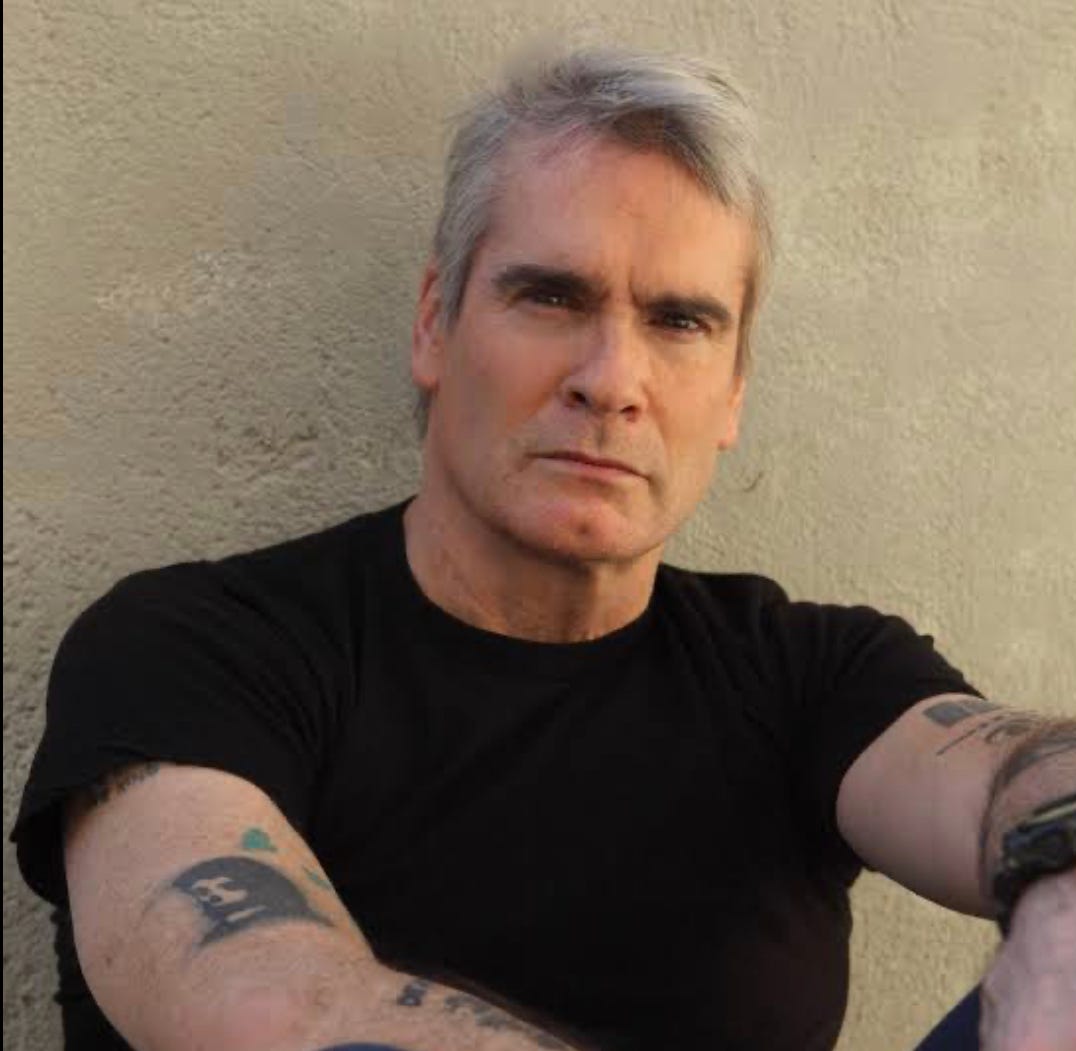
Oh man can he talk. Barely takes a breath. His personal stories are always the best. The piece on his mum was brilliant. The set was maybe 30 minutes too long